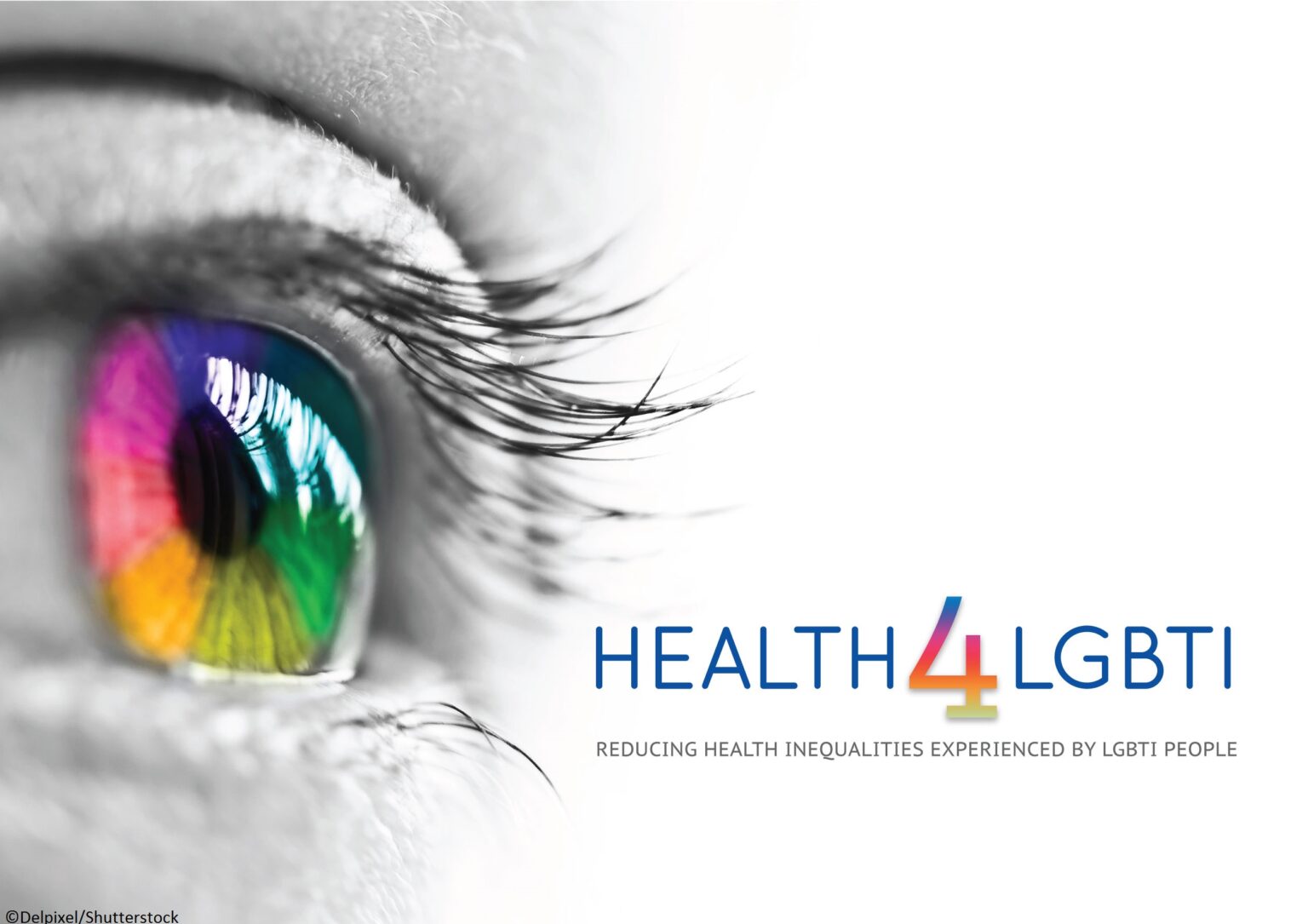Health4LGBTI: Reducing health inequalities experienced by LGBTI people

Health4LGBTI is an EU funded pilot project aiming at reducing health inequalities experienced by LGBTI people. It has been implemented between March 2016 and March 2018.
ILGA-Europe was part of the Consortium that under a service contract with the European Commission has explored the health needs and challenges faced by LGBTI people and analysed the key barriers faced by health professionals when providing care for LGBTI people.
General information about the project
The aims of the Health4LGBTI pilot project are to raise awareness of the specific health inequalities and barriers experienced by LGBTI people and to increase understanding of how best to reduce them; focusing on overlapping inequalities stemming from discrimination and unfair treatment on other grounds. The project also aims to provide European health professionals with relevant tools to allow them to develop the right skills and knowledge to overcome these barriers.
The other Consortium partners include AOUI-Verona (Italy, project coordinator), University of Brighton (UK), the National Institute of Public Health – National Institute of Hygiene (Poland) and EuroHealthNet.
For more information, visit the European Commission’s website page about the project.
Project activities
The project explored some of the particular health needs and challenges faced by LGBTI people and analysed the key barriers faced by health professionals when providing care. A variety of activities took place including:
- A state-of-the-art study of the health inequalities experienced by LGBTI people and the barriers faced by health professionals in providing healthcare for LGBTI people;
- 12 focus group studies (2 focus groups in each of the 6 participating EU Member States: Poland, Italy, UK, Belgium, Bulgaria, and Lithuania) to map the barriers faced both by LGBTI people and health professionals;
- The development of a modular training course aimed at increasing the knowledge, attitudes, and skills of healthcare professionals when providing care for LGBTI people;
- The piloting of the training course in the same Member States where the focus groups were conducted, in order to fine-tune and finalise the modules;
- A final European conference, which was part of the dissemination efforts to raise awareness of the topic and of the training course in particular.
Key findings
Although situations vary across Member States, the state-of-the-art study and focus group studies confirmed the existence of health inequalities, barriers, and discrimination LGBTI people experience that have an impact on their health outcomes. Key findings included:
1. Root causes likely to contribute to the health inequalities of LGBTI people are:
- prevailing cultural and social norms that assume people are non-LGBTI by default;
- minority stress associated with an individual’s LGBTI identity;
- victimisation;
- discrimination (individual and institutional), and;
- stigma.
2. LGBTI people face significant mental and physical health inequalities and are at higher risk of poor mental health compared to the general population, including higher incidence of suicidal thoughts, substance misuse, anxiety, and deliberate self-harm.
3. LGBTI people face barriers when accessing healthcare, the most significant ones are:
- prejudicial attitudes and discriminatory behaviour of healthcare staff compounded by their use of heteronormative language and documentation;
- fear surrounding the disclosure of their gender identity, sexual orientation, or sex characteristics;
- lack of consistency and continuity in the care provided to LGBTI people;
- lack of knowledge and recognition of the specific health needs of LGBTI people;
- implicit and explicit LGBTI-phobia where LGBTI people report being denied access to health services due to their sexual orientation, gender identity, or sex characteristics.
4. Many health professionals lack knowledge and cultural competence around the lives and healthcare needs of LGBTI people. Medical literature regarding the health of LGBTI people needs to be updated and health professionals’ assumptions should be questioned such as assuming that people are non-LGBTI by default; that being LGBTI is not relevant for healthcare providers; and beliefs that LGBTI people do not experience significant discrimination.
5. All groups within LGBTI communities (and particularly bisexual, trans, and intersex people) encounter their own specific barriers, and healthcare professionals’ knowledge of these groups is limited.
6. Although scarce, examples of promising practice meeting the needs of LGBTI people do exist. The state-of-the-art study revealed significant gaps in research. For example, there is very limited research to understand the general health profile of trans and intersex people, their experiences, as well as their physical and mental health needs. Similarly, further research adopting an intersectional perspective on health inequalities experienced by LGBTI people is required.
Training course
Findings from the state-of-the-art study and focus group studies were used to develop a dedicated training course for healthcare professionals aiming to increase their skills, knowledge and competences when providing care for LGBTI people. The course, comprising four training modules, is aimed at all health professionals regardless of their specialisation or experience of working with LGBTI people, and can include administrative staff (or similar) working in health settings.
The training modules were piloted in the same countries as the focus group studies, and fine-tuned based on feedback. The training is formulated in such a way as to facilitate replication on a large scale in many different European countries.
The training package can be downloaded here.
Training medical professionals on LGBTI inclusive practices works!
Published in December 2019, this paper describes the training methods and impacts of the #Health4LGBTI research project to develop training materials for healthcare providers. Results indicate that training participants increased their understanding, sensitivity, and empathy with LGBTI people seeking healthcare across all sites for the training.